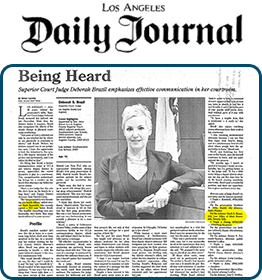One of the things I need to get is information about the blood draw and see if I can actually take a look at the puncture site to see where it was that the blood was drawn from and what the condition of the person’s skin and muscles are after a blood draw.
Many times people will walk into my office after having a blood draw, and I need to photograph and document the condition of the puncture site because the phlebotomist or the blood draw technician just did not do things right. There may be an extensive amount of bruising and internal bleeding and damage that was done. So one of the first things I like to do is to see where it is that the blood was actually drawn from and check for any sterilizing agent still on the puncture site.
This is all something if someone gets to me in a relatively short period of time. If some time has passed, the bruising may heal or go away and then, of course, sanitizing agents can be washed away. So I may not be able to see those signs of an improper blood draw. Still, I need to know where the person was and how the blood was drawn. I need information concerning the situation from the minute before the needle went in the arm until the blood was ultimately analyzed by an instrument.
Do People Generally Get Discouraged in Blood Draw Cases?
A lot of people do get discouraged when there is a blood draw because they think that blood is the gold standard and they don’t understand the potential for errors in a blood case. They see a number come back on a piece of paper like a district attorney or other prosecutor may see a lab report, a one-page report, and think that that’s the number and that’s the end of the story. It’s really not. There is so much more that goes into a DUI blood case that needs to be looked at.
If we just take a step back and look at blood cases and how many steps are involved, we can start to see where the errors can creep in. When you look at somebody who has been stopped and detained for driving under the influence, there is going to be an investigation, which is going to be a delay in time.
Alcohol levels are going to change in the body over time, so if someone is stopped at 2 o’clock in the morning and an investigation is done on the side of the road until 2:30, the person is arrested and then taken to a police station for a blood draw. You’re now going to be at 3 o’clock or 3:30 in the morning before a blood draw technician is there and ready to draw the blood, so you’re talking about an hour and a half delay between the time of driving and the time of the blood test. The blood alcohol level in the person’s body is going to change.
In most instances, the person probably would have been home in bed sleeping an hour and a half after they were stopped, and that’s not an accurate number compared to what they were at the time of driving.
Then, when the blood draw is actually taken, we have to look at who takes the blood. Is it a phlebotomist, a blood draw technician, a police officer? What are that person’s training and qualifications? Where did that person get their equipment, and what equipment was used?Where did they get the blood vial, the sanitizing agents to clean the puncture site? What puncture site did the phlebotomist or blood draw technician choose to use? Was the area cleaned with an alcohol wipe or a non-alcohol wipe? When the blood was drawn from the person, was it properly mixed with the anticoagulant preservative, and who took possession of the sample after the blood was drawn?
Once it got to the crime lab, how long was it at the crime lab before it was inventoried, refrigerated, and how long did it sit on the shelf before it was taken out to be analyzed? Who opened it, who split it, who did the analysis, and how many people did the analysis?
These are all questions that need to be answered before you ever get to the analysis of the blood. Once you get to the analysis of the blood, then there is a whole host of other questions that you need answered to know whether the blood was properly analyzed.
Was the machine used properly maintained, when was it calibrated for that particular run, how many samples were in that run, were there any problems noted in the bench notes regarding the run of blood, were there any interfering substances in any of the samples in the blood run, were there quality control samples run, was the equipment serviced before and after the samples were analyzed?
The list just goes on and on. So, when you’re dealing with a blood case, there are dozens if not hundreds of questions that must be answered in order to know whether or not a blood result is trustworthy.
For more information on Questions Asked During a Blood Draw Case Consultation, a free initial consultation is your next best step. Get the information and legal answers you’re seeking by calling (310) 424-3145 today.






 Personal Attention
Personal Attention








